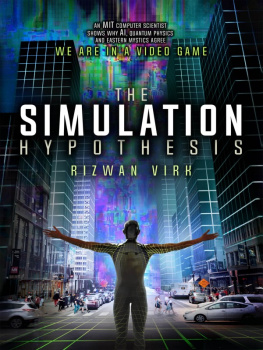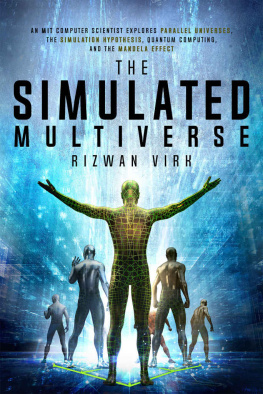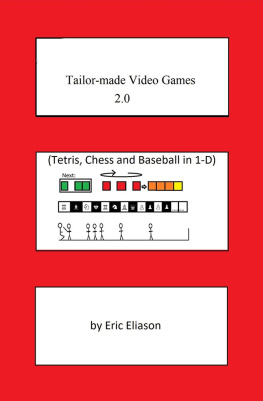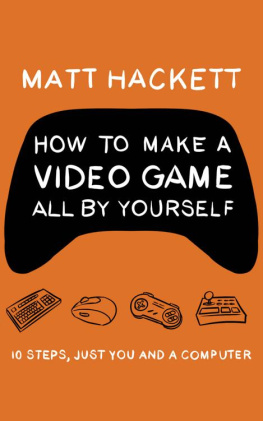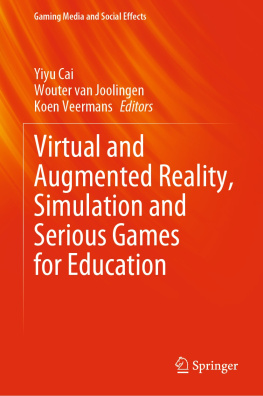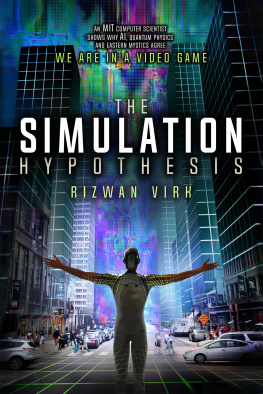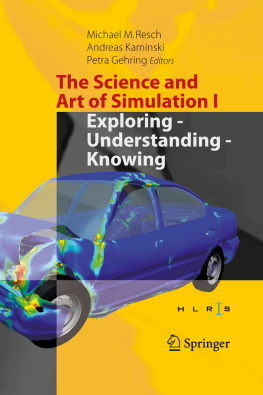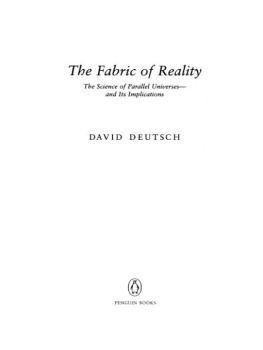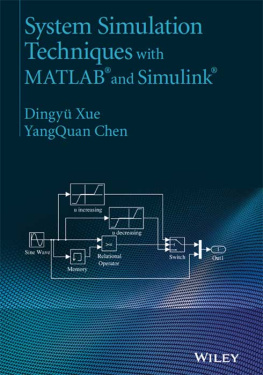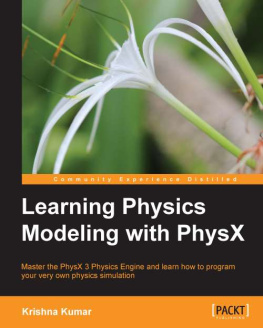Advance Praise for The Simulation Hypothesis:
The Simulation Hypothesis by Riz Virk lays out both the technical aspects of computer simulation and the mystical reasons why we can take Philip K. Dick seriously when he proposed that we are living in a computer-generated reality. His vision that this world is not quite real informed much of his science fiction.
Tessa B. Dick, author of Conversations with Philip K. Dick, wife of Philip K. Dick
I have learned that we live, teach, learn and love in a virtual world. In this book, Riz Virk combines the mind of a scientist with the heart of a mystic, using video games to explain the virtual reality that we live in.
Dannion Brinkley, bestselling author of Saved by the Light and At Peace in the Light
The Simulation Hypothesis presents a radical alternative to current models of reality. Recent speculation in physics shows us that the world we perceive may be an emerging entity produced by an underlying pattern inaccessible to our senses. Many fields rejected or neglected by modern science, such as religious visions, near-death experiences, psychic phenomena and even UFOs, can be brought under the framework proposed by Riz Virk, relying on the latest insights of computer science and on his unique experience designing digital games. The result is a stunning reappraisal of what it means to be human in an infinite universe.
Jacques Valle, venture capitalist, author of Forbidden Science, former scientist at NASA and Stanford Research Institute
Very few people could explain the history of video games, the mechanics of karma, and the implications of quantum physics in one book. Riz Virk is one of them, and his book is as adventurous as it is educational. You may never look at reality the same way again!"
Adam Curry, founder of Entangled, former researcher for Princeton's PEAR Lab
The Simulation Hypothesis provides a deft and knowledgeable blend of video game history, hard science speculation, and science fiction references. Whether or not you believe we all exist in a simulation, I found it both fascinating and entertaining.
Noah Falstein, former chair of the IGDA, former Chief Game Designer at Google
In The Simulation Hypothesis, Riz Virk takes current trends of immersion in video games and personalized entertainment to their logical conclusion: how to build a simulation as real as what we experience in daily life. While no one can say for certain how many lives we have, my advice is to the assume it's a "one-life game" and make the best of it!"
Brent Bushnell, Founder and CEO of Two Bit Circus,
The idea that we might be in a simulation is one of the most interesting and provocative around. The book that Riz Virk has written is important, because it engages, with seriousness and depth, the idea that everything around us is a simulation. Virks credentials make him the right person for the job. Whatever you think of the core idea, this book will make you think againand that is why Virk's book deserves our attention.
Jimmy Soni, Author of A MIND AT PLAY: How Claude Shannon Invented the Information Age
In this brilliant integrative work, Riz Virk astutely tackles ideas ranging from Dream Yoga to computational irreducibility, weaving together modern disciplines and ancient traditions. Virk presents a model of a multiplayer game that can integrate philosophical notions from materialism to mysticism. As for the physics, he is refreshingly not afraid to be clear eyed about the mind-boggling implications. He also maps for us a road toward a future Simulation Point when we will be able to create, as an advanced civilization, our own Great Simulation. This trans-disciplinary overview of The Simulation Hypothesis is a valuable read.
Thomas Brophy, PhD physics, Co-President, California Institute for Human Science, author of Black Genesis: The Prehistoric Origins of Ancient Egypt
Those looking to expand their brains for a few hours should enjoy this cerebral work. A well-crafted discussion of simulation that is unexpectedly persuasive.
Kirkus Reviews
Rizwan Virk's book The Simulation Hypothesis is one of the few works that could convince me that I probably live in a simulated universe. Virk's breadth of knowledge encompasses the history of religions, philosophy, popular culture, modern physics and computer technology, drawing connections which show his theory is not only feasible but probably correct.
As a scholar of religion, I was intrigued by Virks compelling new answer to the age-old issue that all religions grapple with: the conundrum posed by materiality. If we understand that the universe is not material, but probably computational, then we can identify a bridge between mystical traditions and science.
If this sounds mind blowing, it is! This book is also really funny and engaging, with references to popular culture and video games to keep the philosophy and science enjoyable. I highly recommend this bookit expanded my mind's bandwidth!"
Diana Walsh Pasulka , Professor of Philosophy and Religion, University of North Carolina Wilmington, author of American Cosmic: UFOs, Religion, Technology
Riz Virk's book gives both a history of video games and a roadmap on how to build the most sophisticated game of all: The Great Simulation, which would be our version of the Holodeck from Star Trek. Very few technologists can also dive into the philosophical questions that come from the development of AI and high-resolution imagery that would be needed. The Simulation Hypothesis is a fascinating read for any technologist who wonders what the future may hold.
Rajeev Surati, MIT PhD, founder of Scalable Display Technologies
Praise for Zen Entrepreneurship and Treasure Hunt, also by Rizwan Virk:
Treasure Hunt provides some well-worth-your-consideration guidance. Virk provides new maps of understanding, based on the latest thinking of quantum physics and the multiverse, that can guide you through todays jungle of opportunities and dense misadventures.
Fred Alan Wolf PhD, author of Parallel Universes and Dr. Quantum Presents:
Do-it-Yourself Time Travel
So exciting that someone from the tech world is speaking up about synchronicities, signs, and spiritual guidance. Thanks, Riz for giving us case studies and a compelling guide for finding the map we all contain inside.
Pam Grout, #1 New York Times bestselling author of E-squared
The world around us is speaking to us every day in a language of signs and symbols, if only we pay attention. Virk invites us to look at the patterns of everyday life as a treasure map, offering clues we can follow to manifest our dreams.
Robert Moss, author of Conscious Dreaming and Sidewalk Oracles
Tales of Power meets the Peaceful Warrior... in Silicon Valley! Zen Entrepreneurship is entertaining, humble, insightful and valuablenot just to entrepreneurs, but to anyone looking to manifest their dreams and make a difference in the world.
Foster Gamble, Creator and Host,
Thrive: What on Earth Will It Take
In Zen Entrepreneurship, Riz Virk brings the wisdom of ancient Eastern traditions into a purely Western setting. The result is an often hilarious but always insightful book that will change how you view career success and help you discover and walk your own unique path.
Marc Allen, author of Visionary Business, CEO and co-founder of New World Library
The Simulation Hypothesis

Next page
